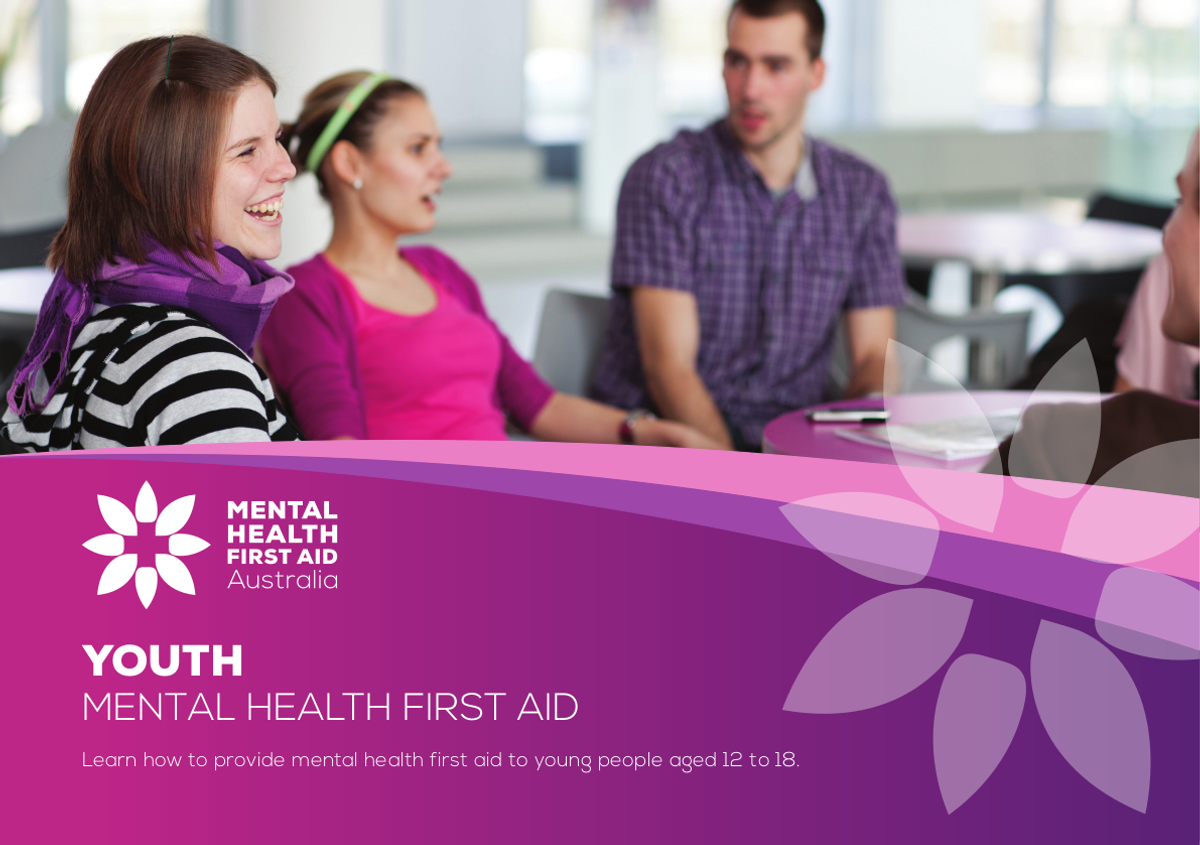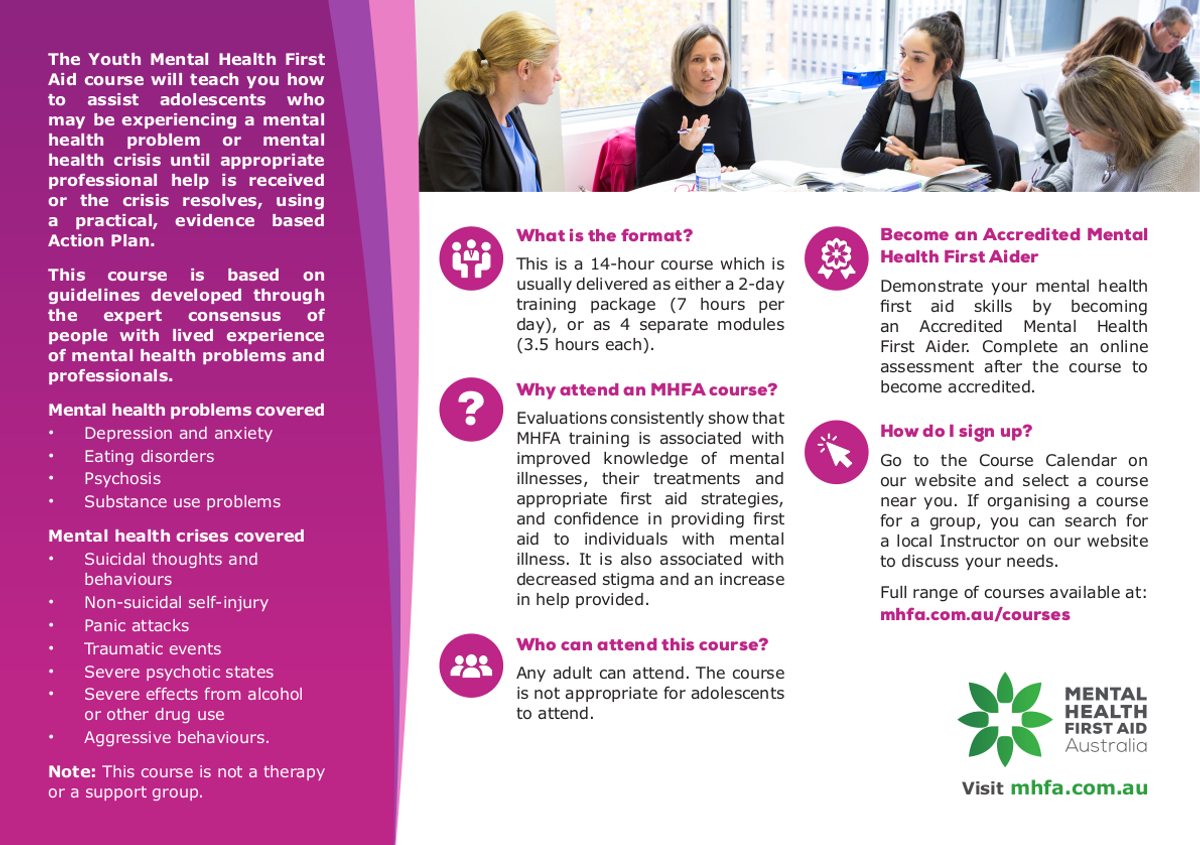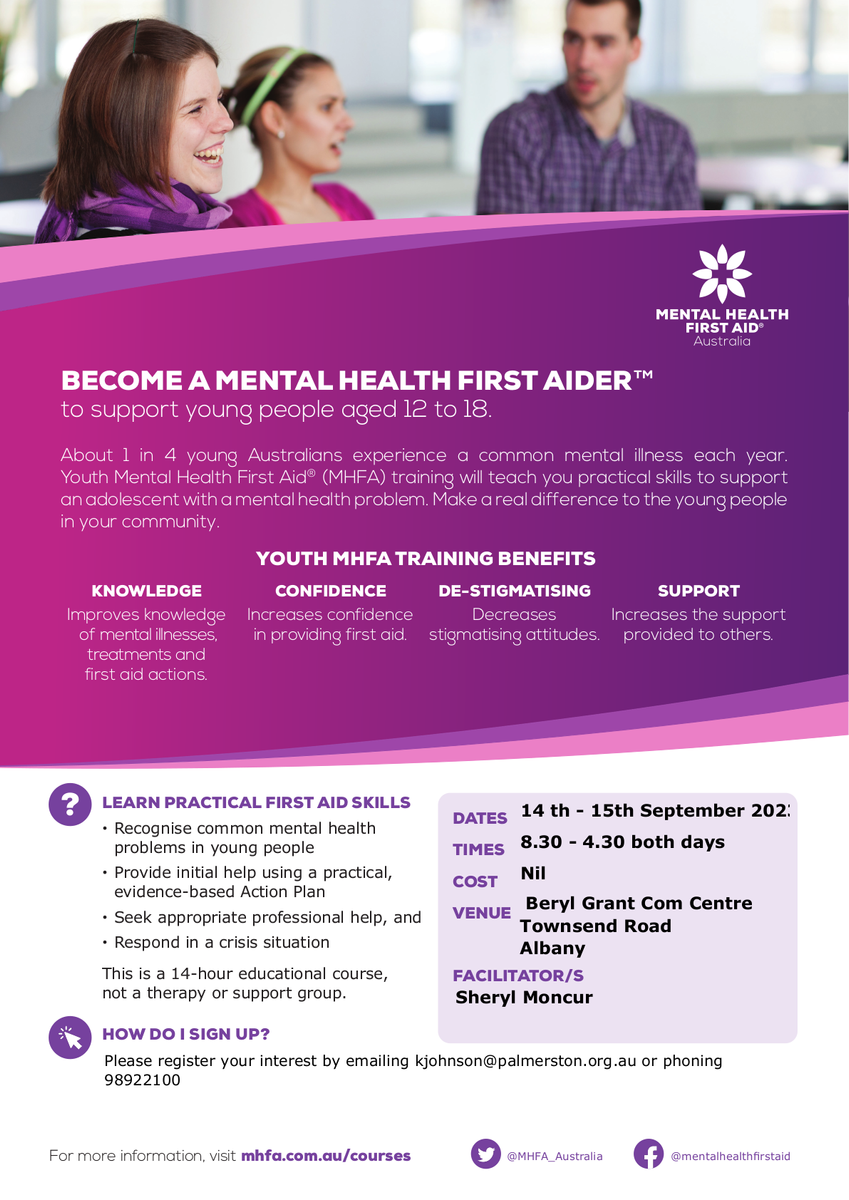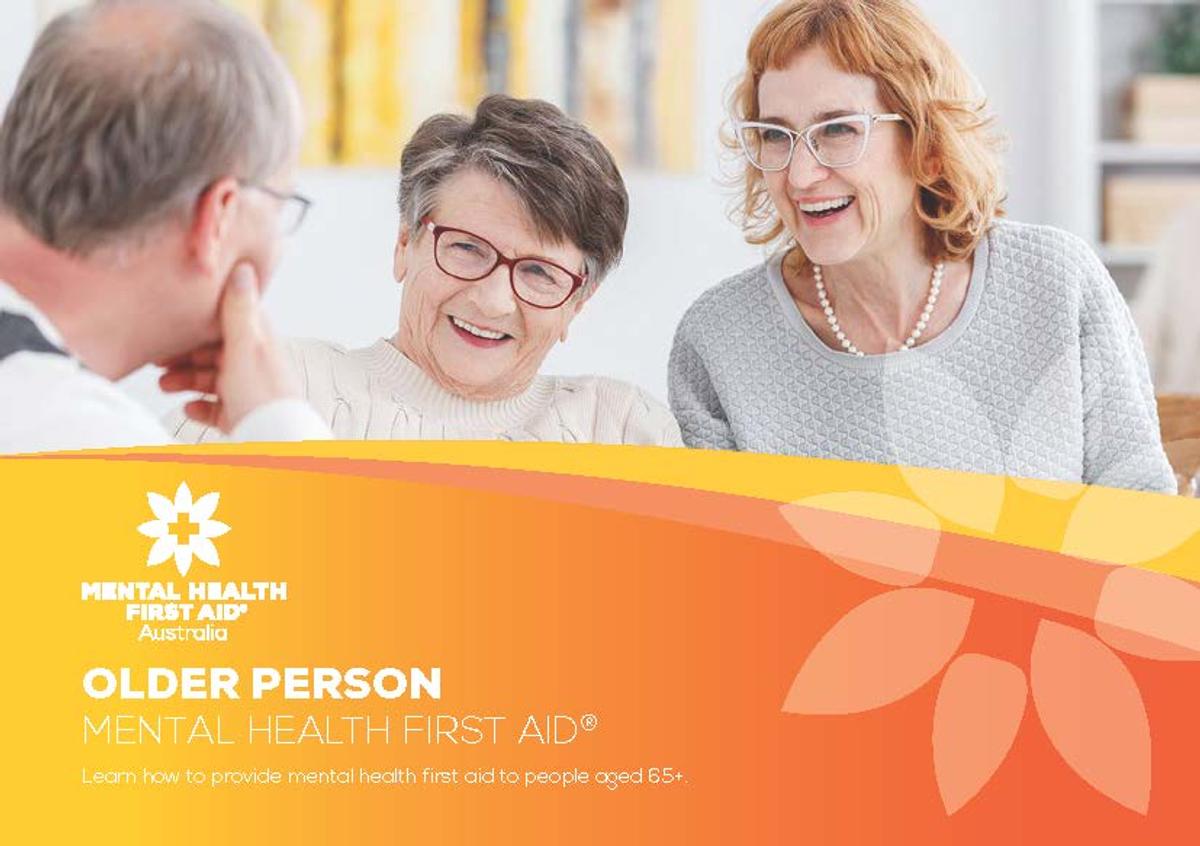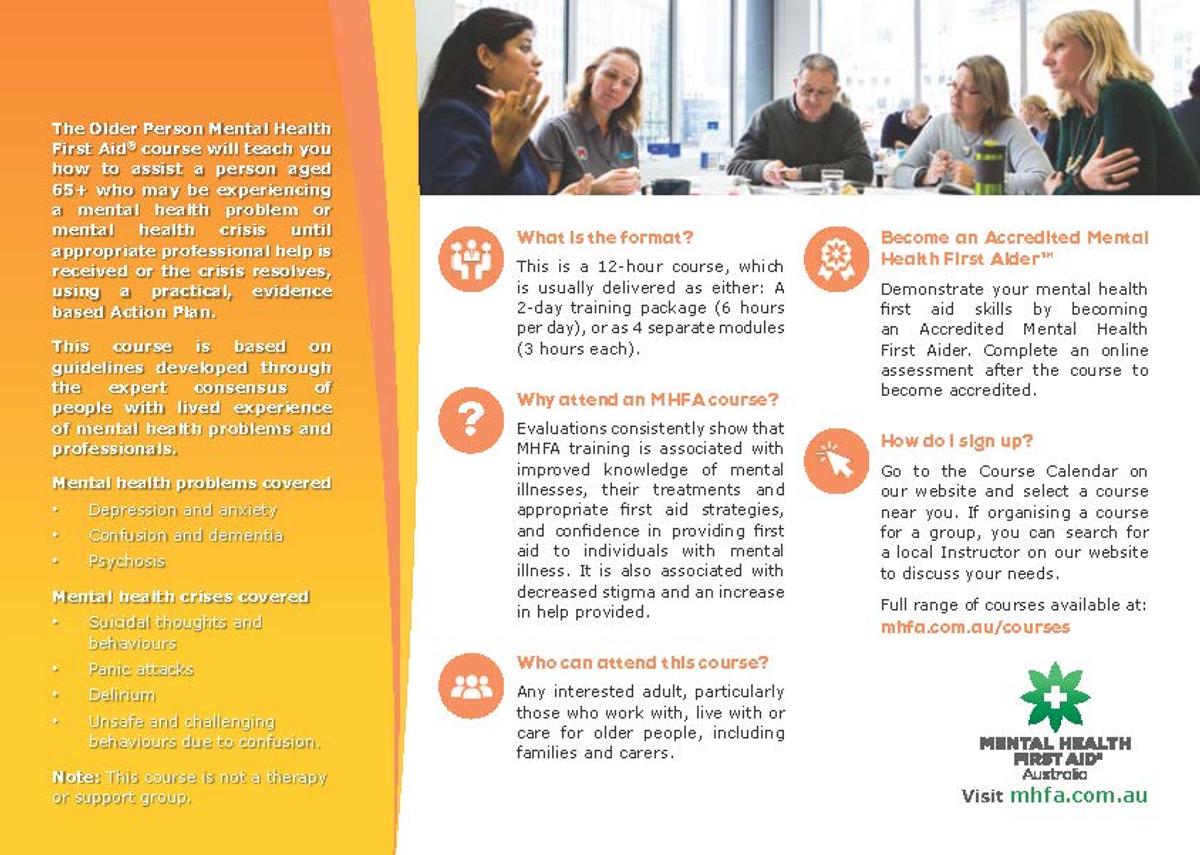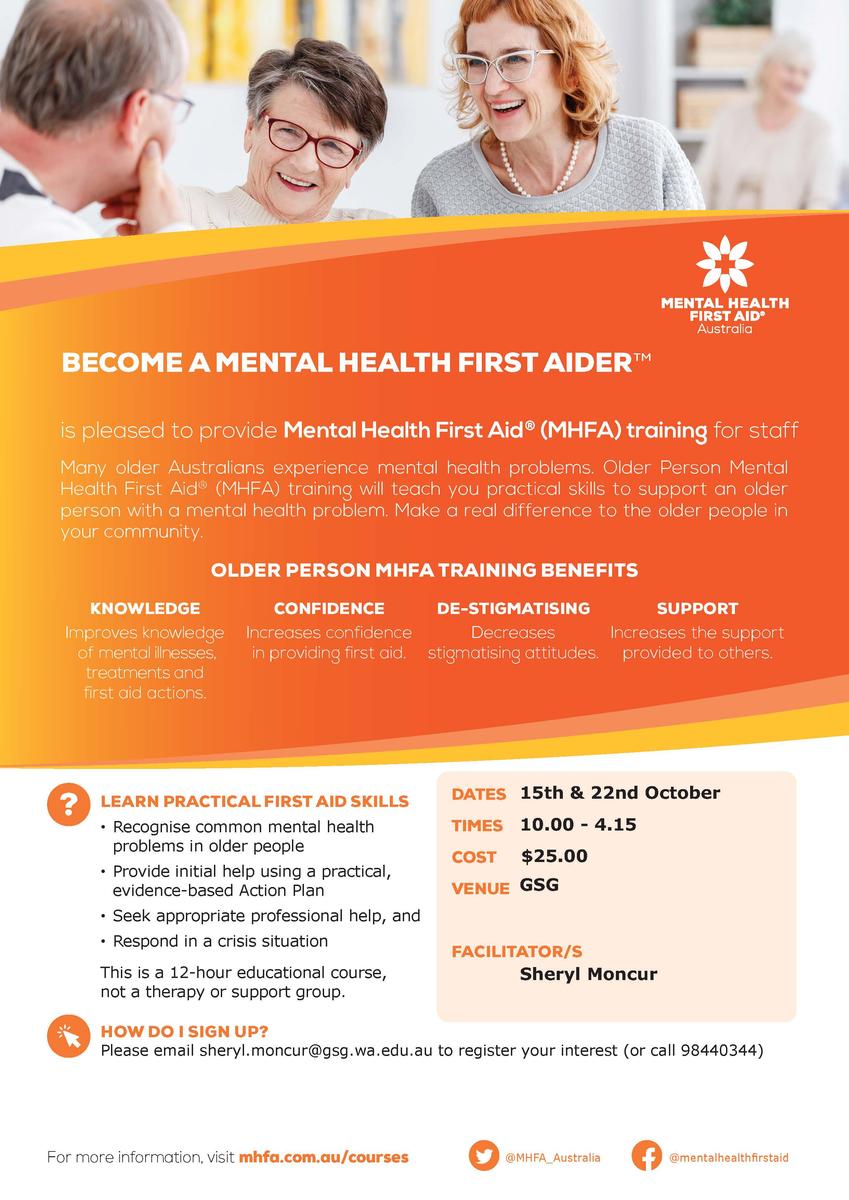From the Wellness Centre
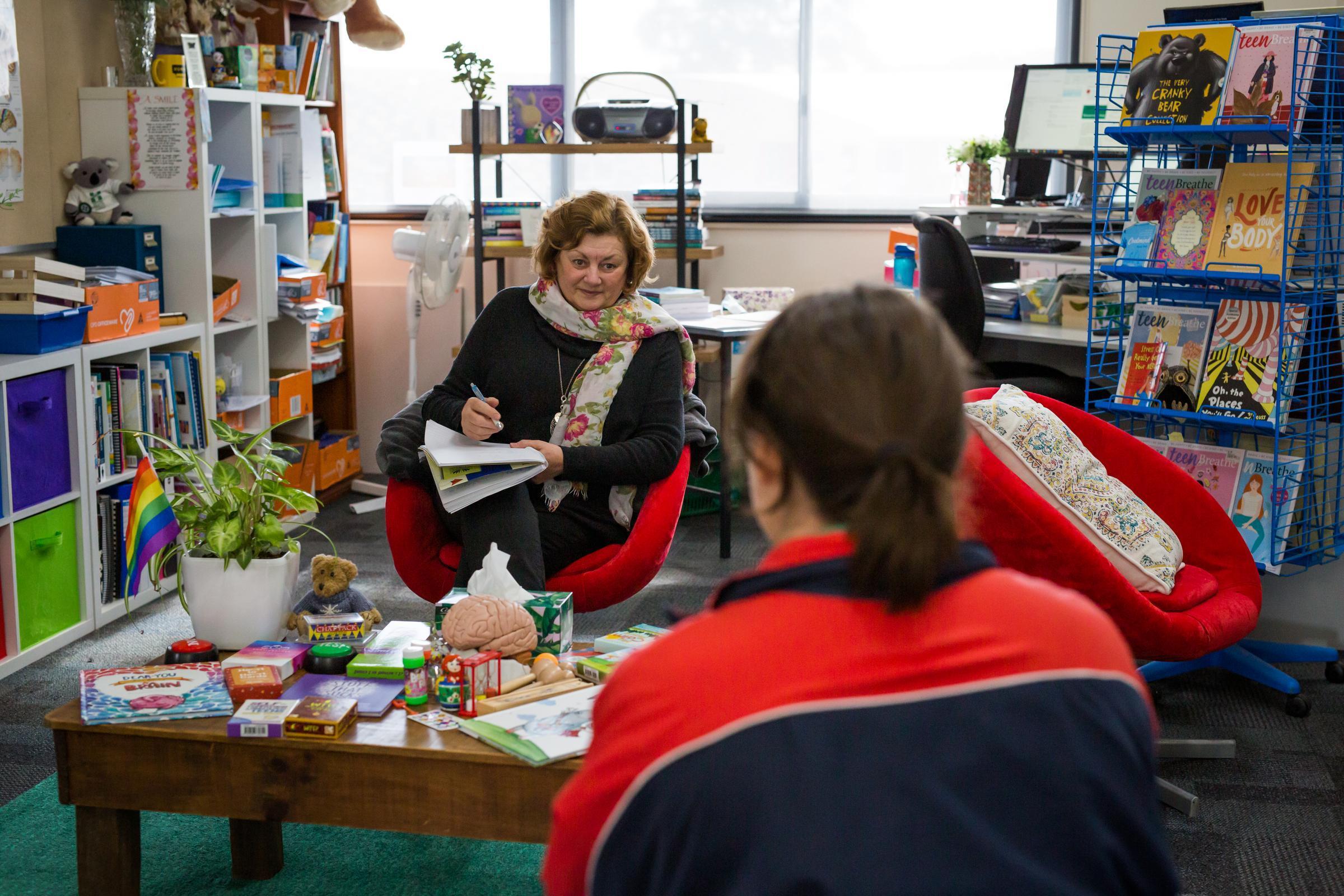
Youth Mental Health First Aid Training
In the spirit of partnership with Palmerston, GSG will be presenting this 14 hour course at the Beryl Grant Centre on 14 to 15 September, which is in Week Nine of this term. So far we are a robust group of 13 and an optimal number for adult learning would accommodate up to 24. The urgent need for such awareness building courses is sadly and palpably understood in our local area. I strongly encourage you to consider signing up to this course, with a friend or family member. You could save a life.
Please email kjohnson@palmerston.org.au if you would like to register your interest in this training, for which there is no fee. Also, please see the flyers for further details, or email me sheryl.moncur@gsg.wa.edu.au for a chat if you wish.
Older Persons Mental First Aid Training
During the second week of the July school holidays, I was fortunate to be trained in this course at an Instructor Masterclass. We were a small group of eight, from across the continent, who gathered in Fremantle for several days of learning, demonstrating, creating and challenging our personal comfort zones.
OPMHFA Training will teach you how to assist a person aged 65+ who may be experiencing a mental health problem or mental health crisis until appropriate professional help is received or the crisis resolves, using a practical, evidence-based Action Plan. The course is based on guidelines developed through the expert consensus of people with lived experience of mental health problems and professionals, via the Delphi Research Method. The areas covered in the course include depression and anxiety, confusion and dementia, psychosis, suicidal thoughts and behaviours, panic attacks and delirium.
I would love you to join me in my first delivery of this training on two consecutive Sundays 15 and 22 October in Term Four, from 10.00am to 4.15pm. The training will take place at GSG and there will be a small cost of $25 to cover the price of the materials. Catering will include nibbles on the tables and afternoon tea. Please see the flyers for further information.
Peer Mediation
As mentioned in a recent column, I have been extremely privileged to share the last four Friday (Period three) lessons with a group of laudable GSG Year Twelve Leaders. Pierce Newman, Annalise Wilson, Bethany Robertson, Madeleine Byrne, Levi Masih, and Felicity Poole all brought their A-game to this new venture – they displayed curiosity, insight, commitment and dedication to this training. This course is really a pared down taster of what Peer Mediation is and isn’t, its process, the qualities of a peer mediator, its applicability and where it sits in the conflict resolution space. The 6 participants will receive a Certification of Completion of the training in the next few days.
Although, as mentioned, the course was rather abridged, there were several essential learnings that the students took away with them: Peer Mediation is a structured process, that mediators are in control of the process, that the parties are in control of the outcome, that the parties take responsibility of the past and future, the mediators are impartial. In short, peer mediation involves two trained students assisting other students through a structured process to reach a resolution of a conflict, misunderstanding, dispute. Our group members were able to manage mediating an unknown scenario in teams of disputants and mediators.
It's worthwhile recapping the reasons which underpin my interest in broadening this training at GSG.
Peer Mediation:
- Fosters self-regulation, self-esteem, self-discipline;
- The skills are transferable to a variety of settings
- Promotes critical thinking, conflict resolution, problem solving
- Supports youth in becoming responsible citizens
- Encourages people to change the way they negotiate – moving from positional bargaining to principled negotiation based on issue and interests
It is my sincere hope that Peer Mediation would sit within the broader Pastoral System at GSG – where students, staff and community members recognise it as a legitimate conflict resolution, problem solving, help seeking option. GSG could have a trained cohort of interested students whose motivation for the training would be primarily around fostering pro-social behaviours across the campus and beyond.
Yours in Maintaining Mental Health and Help Seeking.
Ms Sheryl Moncur | School Counsellor & Teacher

